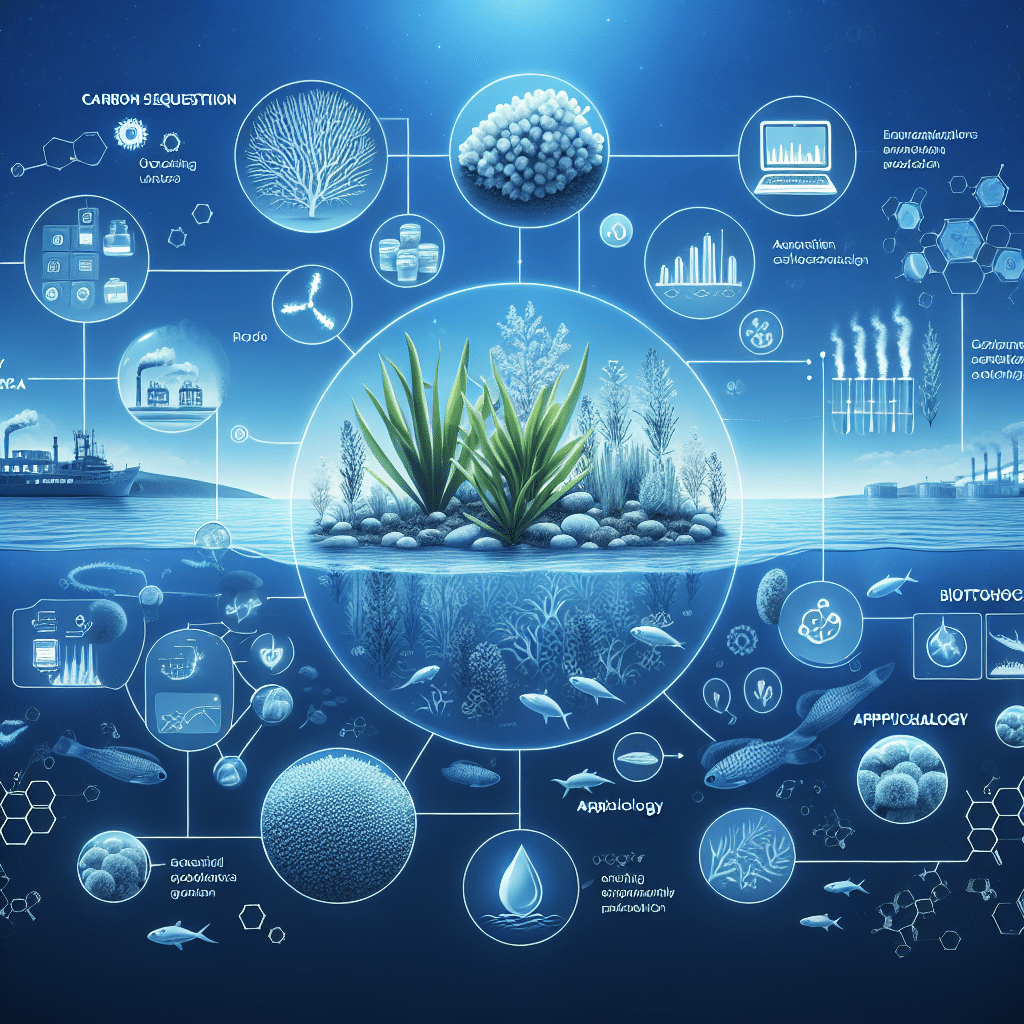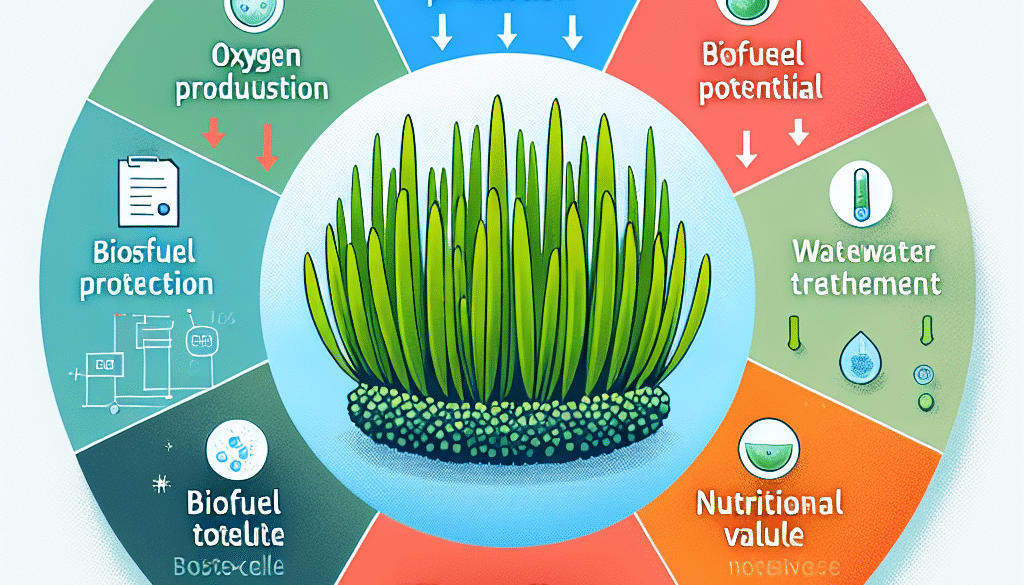What Are The Advantages Of Microalgae?
-
Table of Contents
- Microalgae: Unveiling the Multifaceted Advantages of Nature’s Tiny Powerhouses
- Environmental Benefits of Microalgae
- Economic Advantages of Microalgae
- Health and Nutritional Benefits of Microalgae
- Industrial and Commercial Applications of Microalgae
- Case Studies and Statistics Supporting Microalgae Advantages
- Conclusion: The Sustainable Future with Microalgae
- Discover ETprotein’s High-Quality Protein Products
Microalgae: Unveiling the Multifaceted Advantages of Nature’s Tiny Powerhouses

Microalgae, the microscopic algae predominantly found in marine and freshwater systems, are emerging as one of the most promising resources for sustainable production of energy, food, and high-value compounds. These tiny organisms are capable of performing photosynthesis, converting sunlight, carbon dioxide, and water into oxygen and biomass. This process not only contributes to carbon sequestration but also provides a platform for a multitude of applications that benefit the environment, economy, and human health. In this article, we will explore the various advantages of microalgae and how they are revolutionizing industries across the globe.
Environmental Benefits of Microalgae
- Carbon Capture and Climate Change Mitigation: Microalgae are efficient at absorbing carbon dioxide from the atmosphere, making them excellent tools for combating climate change. They can sequester carbon dioxide from industrial emissions, thus reducing the greenhouse gas effect.
- Bioremediation: Microalgae can be used to clean up polluted water bodies by absorbing toxins and heavy metals. This process, known as bioremediation, helps in restoring the health of aquatic ecosystems.
- Biodiversity Preservation: Cultivating microalgae does not require deforestation or land conversion, thereby preserving natural habitats and biodiversity.
Economic Advantages of Microalgae
- Renewable Biofuel Production: Microalgae can be processed into biofuels such as biodiesel, bioethanol, and biogas. These biofuels are renewable and can help reduce dependence on fossil fuels.
- Cost-Effective Cultivation: Microalgae can be grown in ponds, photobioreactors, or even wastewater, requiring less land and resources compared to traditional crops.
- Job Creation: The microalgae industry has the potential to create jobs in rural areas, from cultivation to processing and product development.
Health and Nutritional Benefits of Microalgae
- Rich Nutrient Profile: Microalgae are a source of high-quality proteins, omega-3 fatty acids, vitamins, minerals, and antioxidants, making them a superfood for human consumption.
- Pharmaceutical Applications: Certain microalgae produce bioactive compounds that have anti-inflammatory, antiviral, and anticancer properties, which can be used in drug development.
- Dietary Supplements: Microalgae such as spirulina and chlorella are already popular as dietary supplements due to their health benefits.
Industrial and Commercial Applications of Microalgae
- Bioplastics and Biochemicals: Microalgae can be used to produce biodegradable plastics and various biochemicals, reducing reliance on petrochemicals.
- Animal Feed: Microalgae serve as a sustainable and nutritious feed ingredient for aquaculture, poultry, and livestock.
- Cosmetics and Skincare: The antioxidants and vitamins in microalgae are valuable in the cosmetics industry for making skin care products.
Case Studies and Statistics Supporting Microalgae Advantages
Several case studies and research findings highlight the potential of microalgae. For instance, a study by the Department of Energy in the United States estimated that algae could produce up to 60 times more oil per acre than land-based plants used for biofuels. Moreover, companies like Algenol have successfully demonstrated the commercial viability of algae-based biofuels, with production rates that significantly surpass those of traditional biofuel crops.
In the realm of nutrition, the global spirulina market size was valued at USD 346.6 million in 2019 and is expected to grow, indicating a rising demand for microalgae-based supplements. Similarly, the use of microalgae in aquaculture has seen a surge, with the aquafeed market projected to reach USD 70.09 billion by 2024, as reported by MarketsandMarkets.
Conclusion: The Sustainable Future with Microalgae
In conclusion, microalgae offer a plethora of advantages that can address some of the most pressing global challenges, including climate change, food security, and sustainable industrial practices. Their ability to grow rapidly, adapt to various environments, and produce valuable biomass and compounds positions them as a key player in the transition towards a greener and more sustainable future. As research and technology continue to advance, the potential applications of microalgae are bound to expand, further cementing their role as an invaluable resource for humanity.
Discover ETprotein’s High-Quality Protein Products
If you’re interested in incorporating the benefits of microalgae into your diet or product line, ETprotein offers a range of high-quality protein products derived from various sources. Their offerings include organic rice protein, pea protein, and other plant-based proteins that are non-GMO, allergen-free, and characterized by a neutral taste. ETprotein’s products cater to industries such as nutraceuticals, pharmaceuticals, cosmeceuticals, and food and beverage, providing comprehensive solutions for all your protein needs.
For those seeking innovative ingredients, ETprotein also supplies L-(+)-Ergothioneine (EGT) in various grades suitable for pharmaceutical, food, cosmetic, and research applications. With purity levels exceeding 98%, ETprotein’s EGT products meet the highest standards of quality.
As a trusted partner of leading global brands, ETprotein is committed to delivering excellence and supporting your journey towards healthier and more sustainable products. To learn more or to request samples, contact ETprotein and email sales(at)ETprotein.com today.
About ETprotein:
ETprotein, a reputable protein and L-(+)-Ergothioneine (EGT) Chinese factory manufacturer and supplier, is renowned for producing, stocking, exporting, and delivering the highest quality organic bulk vegan proteins and L-(+)-Ergothioneine. They include Organic rice protein, clear rice protein, pea protein, clear pea protein, watermelon seed protein, pumpkin seed protein, sunflower seed protein, mung bean protein, peanut protein, and L-(+)-Ergothioneine EGT Pharmaceutical grade, L-(+)-Ergothioneine EGT food grade, L-(+)-Ergothioneine EGT cosmetic grade, L-(+)-Ergothioneine EGT reference grade and L-(+)-Ergothioneine EGT standard. Their offerings, characterized by a neutral taste, non-GMO, allergen-free attributes, with L-(+)-Ergothioneine purity over 98%, 99%, cater to a diverse range of industries. They serve nutraceutical, pharmaceutical, cosmeceutical, veterinary, as well as food and beverage finished product distributors, traders, and manufacturers across Europe, USA, Canada, Australia, Thailand, Japan, Korea, Brazil, and Chile, among others.
ETprotein specialization includes exporting and delivering tailor-made protein powder and finished nutritional supplements. Their extensive product range covers sectors like Food and Beverage, Sports Nutrition, Weight Management, Dietary Supplements, Health and Wellness Products, and Infant Formula, ensuring comprehensive solutions to meet all your protein needs.
As a trusted company by leading global food and beverage brands and Fortune 500 companies, ETprotein reinforces China’s reputation in the global arena. For more information or to sample their products, please contact them and email sales(at)ETprotein.com today.












